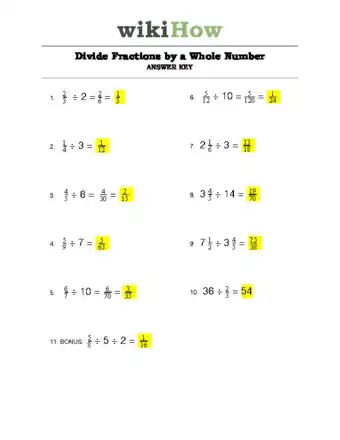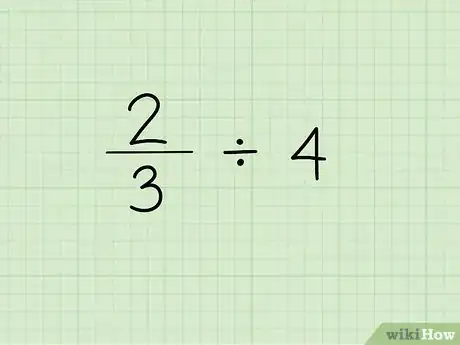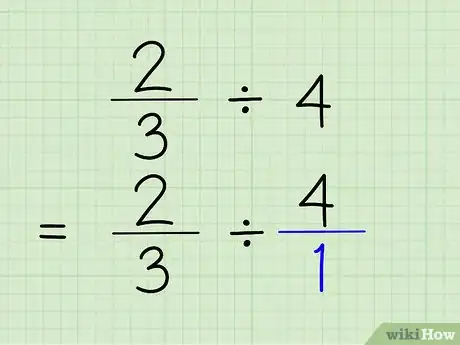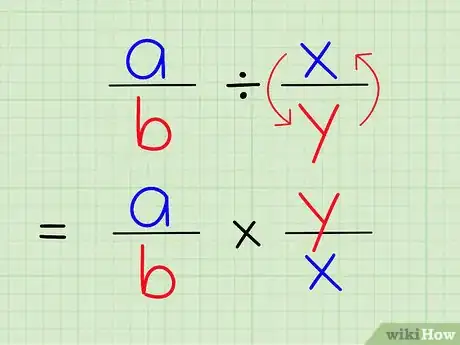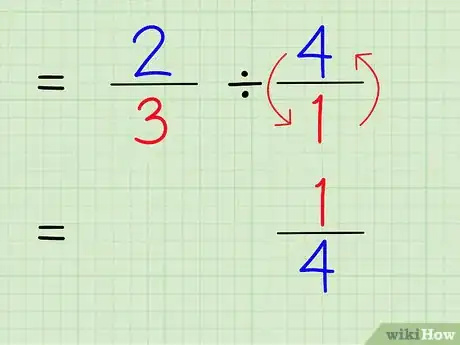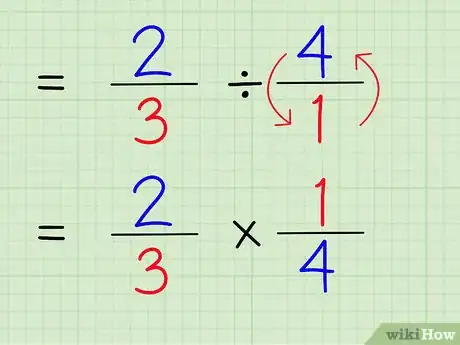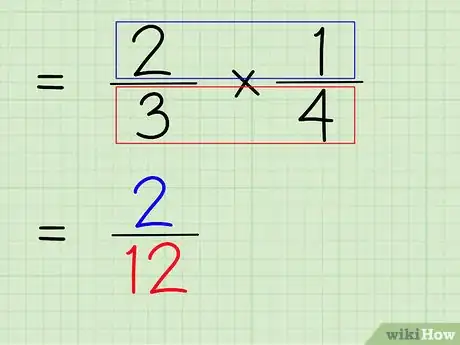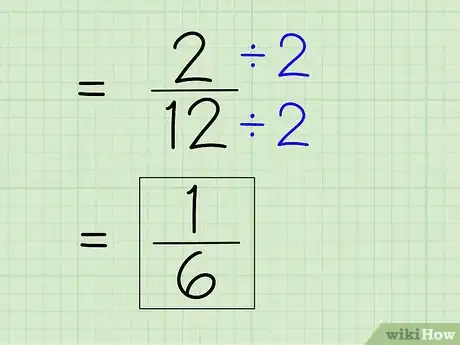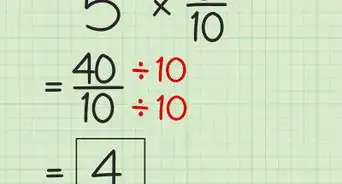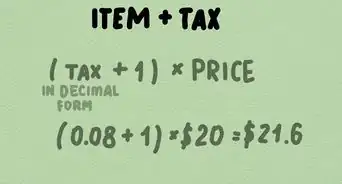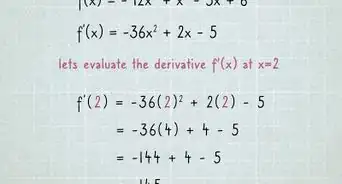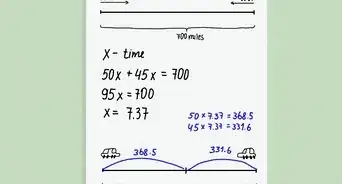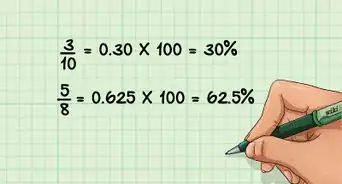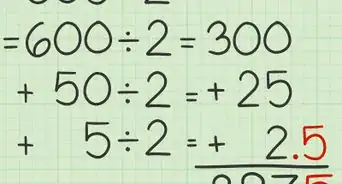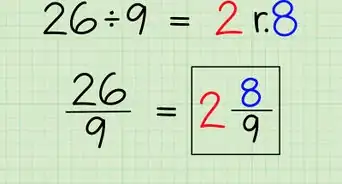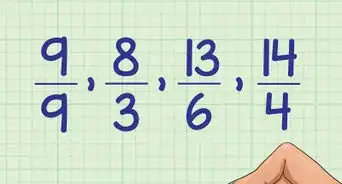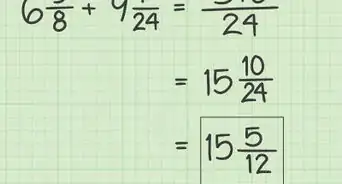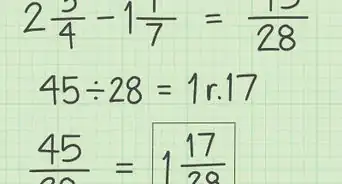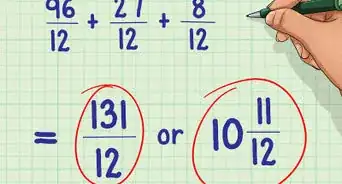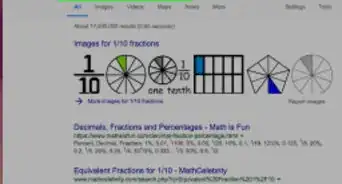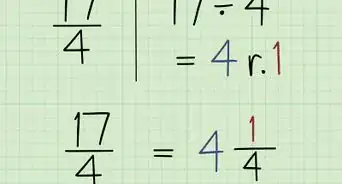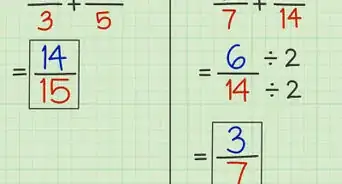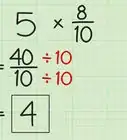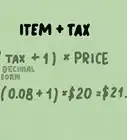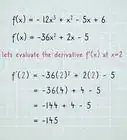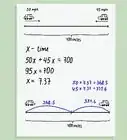This article was co-authored by David Jia. David Jia is an Academic Tutor and the Founder of LA Math Tutoring, a private tutoring company based in Los Angeles, California. With over 10 years of teaching experience, David works with students of all ages and grades in various subjects, as well as college admissions counseling and test preparation for the SAT, ACT, ISEE, and more. After attaining a perfect 800 math score and a 690 English score on the SAT, David was awarded the Dickinson Scholarship from the University of Miami, where he graduated with a Bachelor’s degree in Business Administration. Additionally, David has worked as an instructor for online videos for textbook companies such as Larson Texts, Big Ideas Learning, and Big Ideas Math.
wikiHow marks an article as reader-approved once it receives enough positive feedback. In this case, 89% of readers who voted found the article helpful, earning it our reader-approved status.
This article has been viewed 851,400 times.
Dividing fractions by a whole number isn't as hard as it looks. To divide a fraction by a whole number, all you have to do is to convert the whole number into a fraction, find the reciprocal of that fraction, and multiply the result by the first fraction. If you want to know how to do it, just follow these steps:
Practice Problems
Steps
-
1Write the problem. The first step to dividing a fraction by a whole number is to simply write out the fraction followed by the division sign and the whole number you need to divide it by. Let's say we're working with the following problem: 2/3 ÷ 4.[1]
-
2Change the whole number into a fraction. To change a whole number into a fraction, all you have to do is place the number over the number 1. The whole number becomes the numerator and 1 becomes the denominator of the fraction. Saying 4/1 is really the same as saying 4, since you're just showing that the number includes "1" 4 times. The problem should read 2/3 ÷ 4/1.[2]Advertisement
-
3Dividing a fraction by another fraction is the same as multiplying that fraction by the reciprocal of the other fraction.[3]
-
4Write the reciprocal of the whole number. To find the reciprocal of a number, simply switch the numerator and the denominator of the number. Therefore, to find the reciprocal of 4/1, simply switch the numerator and denominator so that the number becomes 1/4.[4]
-
5Change the division sign into a multiplication sign. The problem should read 2/3 x 1/4.[5]
-
6Multiply the numerators and denominators of the fractions. Therefore, the next step is to multiply the numerators and denominators of the fraction to get the new numerator and denominator of the final answer.[6]
- To multiply the numerators, just multiply 2 x 1 to get 2.
- To multiply the denominators, just multiply 3 x 4 to get 12.
- 2/3 x 1/4 = 2/12
-
7Simplify the fraction. To simply the fraction, you need to find the lowest common denominator, which means that you should divide both the numerator and denominator by any number that divides evenly into both numbers. Since 2 is the numerator, you should see if 2 divides evenly into 12 -- it does because 12 is even. Then, divide both the numerator and denominator by 2 to get the new numerator and denominator to get a simplified answer.[7]
- 2 ÷ 2 = 1
- 12 ÷ 2 = 6
- The fraction 2/12 can be simplified to 1/6. This is your final answer.
Community Q&A
-
QuestionOne fourth is 0.25. Dividing 0.25 by 3, we get 0.083. What is the fraction?
 DonaganTop AnswererIf you want the answer in the form of a fraction, don't convert to a decimal in the first place. Just divide ¼ by 3. That's 1/12.
DonaganTop AnswererIf you want the answer in the form of a fraction, don't convert to a decimal in the first place. Just divide ¼ by 3. That's 1/12. -
QuestionWhat is 2 divided by 2/3?
 DonaganTop AnswererInvert 2/3, then multiply it by 2. 2/3 inverts to 3/2. 3/2 multiplied by 2 is 6/2, or 3.
DonaganTop AnswererInvert 2/3, then multiply it by 2. 2/3 inverts to 3/2. 3/2 multiplied by 2 is 6/2, or 3. -
QuestionWhat is 15 divided by 1 4/5 in fraction form?
 DonaganTop AnswererConvert the mixed number to an improper fraction. Invert it and multiply by the whole number. Reduce the resulting fraction if possible.
DonaganTop AnswererConvert the mixed number to an improper fraction. Invert it and multiply by the whole number. Reduce the resulting fraction if possible.
Warnings
- Only take the reciprocal of the second fraction, the one you're dividing by. Don't change the first one, the one you're dividing into. In our example, we converted the 4/1 to 1/4, but we left the 2/3 as 2/3 (we didn't change it to 3/2).⧼thumbs_response⧽
References
- ↑ http://www.mathsisfun.com/numbers/fractions-division-whole-numbers.html
- ↑ https://www.khanacademy.org/math/cc-sixth-grade-math/cc-6th-arithmetic-operations/x0267d782:dividing-fractions-and-whole-numbers/v/visually-dividing-a-fraction-by-a-whole-number
- ↑ https://www.ck12.org/c/arithmetic/divide-fractions-and-whole-numbers/lesson/Division-of-Fractions-by-Whole-Numbers-MSM6/
- ↑ https://www.cuemath.com/numbers/dividing-fractions-with-whole-numbers/
- ↑ https://www.cuemath.com/numbers/dividing-fractions-with-whole-numbers/
- ↑ https://www.mathsisfun.com/numbers/fractions-division-whole-numbers.html
- ↑ https://www.mathsisfun.com/simplifying-fractions.html
About This Article
To divide a fraction by a whole number, start by writing the whole number over 1 so it looks like a fraction. Then, find the reciprocal of the whole number by switching the numerator and denominator. Your reciprocal should look like 1 over the whole number. When you “divide” fractions by whole numbers, you actually multiply the fraction by the reciprocal of the whole number. To do so, multiply the numerators and denominators of the two fractions. Finally, simplify the result as much as you can. If you want to learn more, like how to simplify your fraction when you're finished, keep reading the article!

